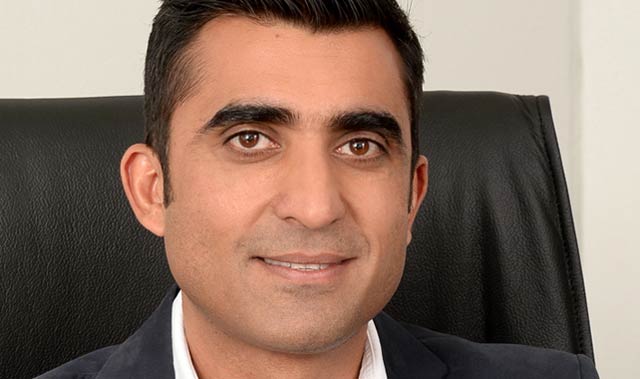
Excessive regulation, a business model that tried to do too much too soon and trust worries among consumers. These are the reasons Vodacom’s M-Pesa and MTN’s Mobile Money failed in South Africa, according to the CEO of fast-growing fintech player Hello Group.
Nadir Khamissa said South Africa’s heavily regulated financial services industry, coupled with an attempt by the mobile operators to do too much too quickly are the main factors that led to the failure of their mobile money services.
Vodacom shuttered M-Pesa in South Africa in mid-2016, while MTN announced plans to close down Mobile Money last week. Hello Group, on the other hand, has built a thriving mobile payments business, focused on international remittances. It has expanded to 30 markets, many of them in Africa, and plans to launch in the UK later this year.
“I have enormous respect for MTN and Vodacom, for everything they’ve achieved, but they were trying to achieve the impossible with their mobile money services,” Khamissa said via a Skype interview from London on Wednesday. “They tried to build mobile banks in a regulatory environment that is extremely hostile to this type of business model.”
He said the first big problem was that regulators forced the operators to partner with a bank to launch their services.
“The banks actually have a disincentive to allow new entrants into this space,” Khamissa said. “And the financial services regulations, while in theory allowing new entrants, impose so many rules that, in effect, they allow the incumbent banks to be the gatekeepers of this industry … which is why we haven’t seen a significant new entrant, other than Capitec.”
But regulation wasn’t the only problem. The mobile operators picked a business model that requires pervasive distribution on day one. “This was almost impossible, despite the billions that they have invested over the years. In order to achieve this kind of pervasive distribution, you have to effectively crowd-source your distribution – you need hundreds of thousands of disaggregated business partners in the field. That’s impossible in South Africa.”
The third challenge, achieving consumer trust, was a hurdle that wasn’t really reached before the operators pulled the plug on their mobile money services. But getting consumers to trust them with their money would have proved a tough nut to crack, he said.
“I won’t blame it solely on the networks. They have tried again and again and have chucked really good people at the problem.”
Despite the fact that the operators failed, Khamissa believes there is still an enormous opportunity in mobile money — or the broader term “digital financial services”, as he prefers to call it — in South Africa. Digital disruption, he said, will still “disaggregate the entire banking and financial services stack”.
Every module of banking will be “disaggregated” by entrepreneurs in the fintech space. “Each module can be run better by organisations that are focused on delivering the best possible customer experience. This is why we have started seeing the disaggregation of banks, and the disruption of the behemoth banks, and that is going to continue.”
However, financial services regulations, such as the sort introduced in South Africa, will slow this disruption, protecting the incumbent banks for longer, he said. But fintech start-ups will eventually reshape the industry and, in time, emerge as significant players.
Banks and mobile operators will struggle to keep pace with the new players, he said. “You need an exceptionally innovative culture that is forgiving of failure. In multibillion-rand organisations, with lots of bureaucracy … it’s almost impossible to do this.”
These companies would do well to invest in the disruptors, but must be careful not to stifle them.
“Mobile networks have a role to play, as do the banks, but the driver of the digitisation of financial services has to be technology entrepreneurs.”
Unfortunately, the mobile operators have until now adopted an approach that they should lead the process, Khamissa said. “They called the shots; they didn’t build a partner ecosystem that allowed tech entrepreneurs to create value on their platform and share in that value.”
That approach has to change, he said.
“MTN has started making venture capital investments, which I think is brilliant. Banks could also be investors. They could make money not only through their equity investments, but entrepreneurs could use their platforms to create something bigger. Combine this with amazing technologies and user experience, and we can create something that none of the three parties could do on its own.”
Fintech entrepreneurs must not be seen as “subordinate” partners. “The mindset today is to go and kill the little guys.” — © 2016 NewsCentral Media

